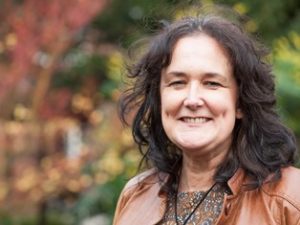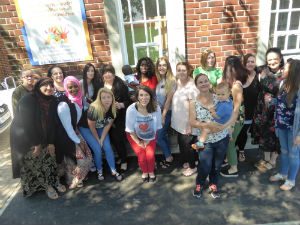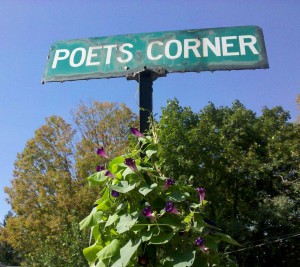Poetry reaffirms our common humanity by revealing to us that individuals, everywhere in the world, share the same questions and feelings. Poetry is the mainstay of oral tradition and, over centuries, can communicate the innermost values of diverse cultures. (United Nations, 2021)
We are so glad she shared this with us this World Poetry Day. We hope you enjoy it as much as we have.
**********************************************************************************************************************************************************************************
Lockdown was about the Google Classrooms
Filled with FaceTimes, meets and zooms.
We had no guests, so no money to spend
No family, no cousins, no friends.
It was cool to be sat on a stool
Scrolling through the online school.
The videos were short but long,
Our teachers wanted our brains to be strong.
As time went on, our brains were frazzled
The thought of school again left us dazzled.
The stress of ‘turning’ work in left us feeling boo hoo.
But in the end, we can all say WOO HOO!
Nothing to do, nothing to play
Online chatting saves the day
Tablets and laptops our virtual friends
To talk to your besties, just press send
Zooms and facetimes all the lot
That’s how we talk to our buddies on laptops
Coronavirus comes and goes
When will it ever leave us alone
The great google meet it has revived
These past few weeks when we’ve been on divide
Never screen-free, always online
Somehow we can all still go outside.
Selfless, super doctors and nurturing nurses,
Tireless work and exhausted minds,
Active physically, but drained mentally.
Claps and fundraising – showing our faith!
Vunderful vaccines creates an impenetrable shield.
The vunderful vaccine creating hope for the sick.
The undoubtedly, unbeatable army of the national health service
Remains undefeated.
The NHS superheroes – free of despair!
Successful scientists gather interesting information about the vital vaccine that will soon save societies.
Hope is key
We go on wonderful walks and draw rainbows in our windows
Hope is key
Sir Captain Tom Moore was not a bore
While we were talking
He was walking
Hope is key
We clap for the NHS
For freedom
For happiness
Hope is key
We will keep going
WE ARE SURVIVORS!
Waking up in the morning
Is always the same
Apart from pets and family
Lockdown’s pretty lame
Learning from a screen
No friends to be seen.
Going to the shops wearing masks
Then coming home to complete our tasks.
Washing our hands
About to cook with pans
Going on a run
Whilst listening to music and having some fun.
Sneakily snacking on sugary sweets
While all the siblings get more sleep
My mum cooks, while I read books.
Me and my dog play
Every single day.
We’re starting history on a new page,
We feel like a gerbil in a hamster cage,
Like a chicken in a coop,
A shark made into soup,
Like a cat on a fence that can’t jump down,
We feel like an animal trapped in a pound,
A rainbow butterfly fluttering around,
Spreading its wings to us on the ground.
Dogs in muzzles,
Birds in cages,
Unable to fly.
Birds that can’t show their feathers and glide,
A turtle that is not in the sea,
We finally understand them, when it’s happening to me.
By Willow Class, St Martin’s CE Primary School, Hants.




 The event, on Saturday 23 June, honoured the programme’s unique history and marked its legacy. Many current and former members of TAEDS and Theatre of the Deaf joined the celebration and were treated to the world premiere of this production of Moonbird, an adaptation of the children’s story by the deaf author Joyce Dunbar. Moonbird was performed most movingly by Handprint Theatre Company which was formed by programme alumni and employs deaf actors and workshop leaders.
The event, on Saturday 23 June, honoured the programme’s unique history and marked its legacy. Many current and former members of TAEDS and Theatre of the Deaf joined the celebration and were treated to the world premiere of this production of Moonbird, an adaptation of the children’s story by the deaf author Joyce Dunbar. Moonbird was performed most movingly by Handprint Theatre Company which was formed by programme alumni and employs deaf actors and workshop leaders. Professor Catherine Tissot, Head of the Institute of Education said:
Professor Catherine Tissot, Head of the Institute of Education said: Theatre director and founder of Deafinitely Theatre, Steve Webb said:
Theatre director and founder of Deafinitely Theatre, Steve Webb said:
 Our annual ATP conference is a happy day in the calendar, as
Our annual ATP conference is a happy day in the calendar, as 




 ted to share with you some information regarding the Stephen Spender Prize for poetry in translation, which might be of interest to MFL and English departments, as well as to any learners with English as additional language. It could be especially empowering for learners who have community or migrant languages.
ted to share with you some information regarding the Stephen Spender Prize for poetry in translation, which might be of interest to MFL and English departments, as well as to any learners with English as additional language. It could be especially empowering for learners who have community or migrant languages.